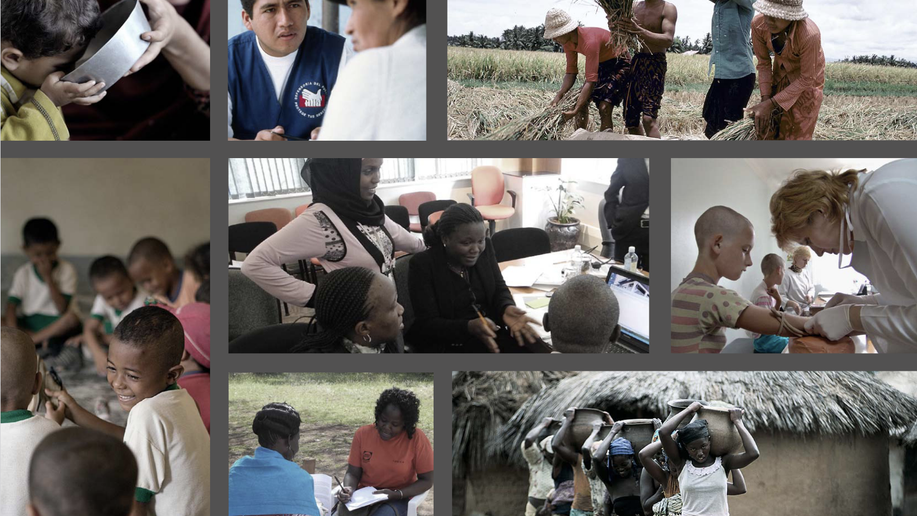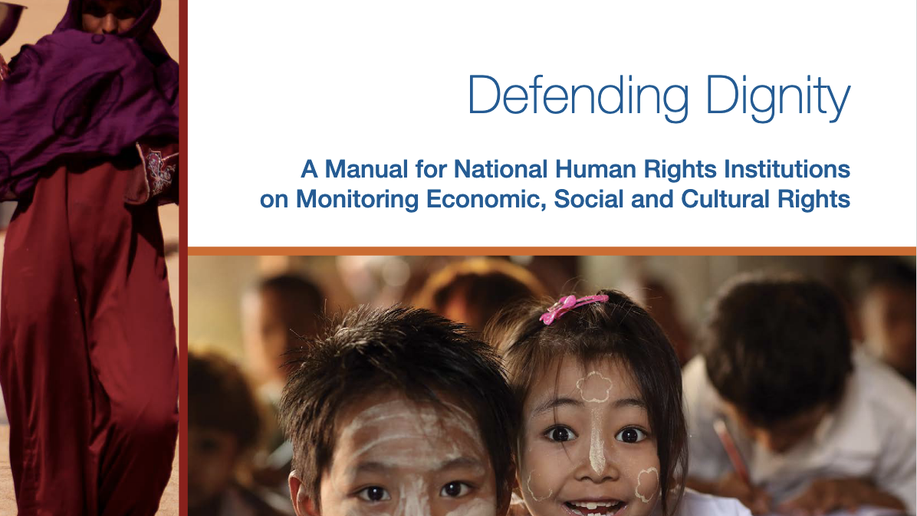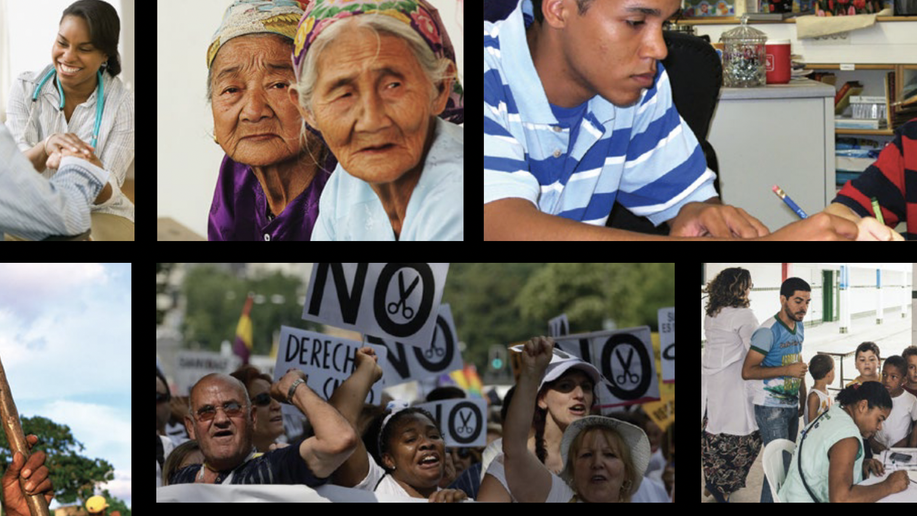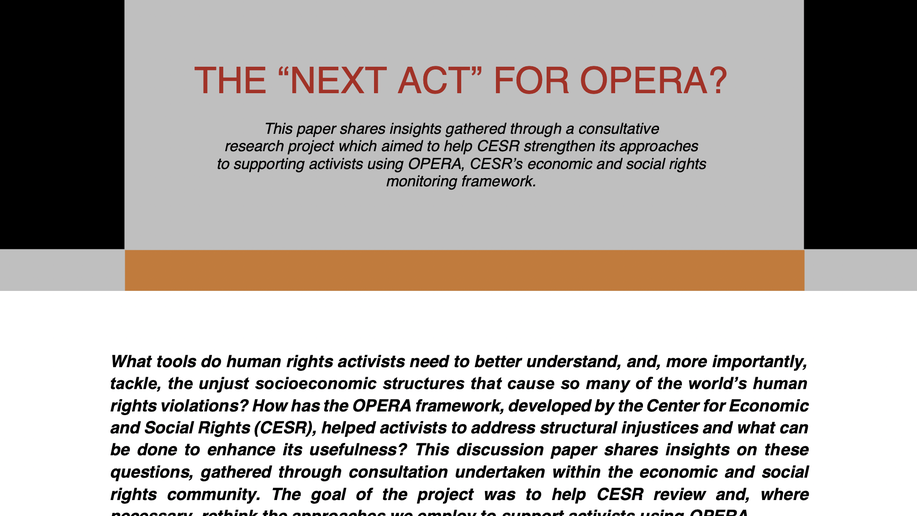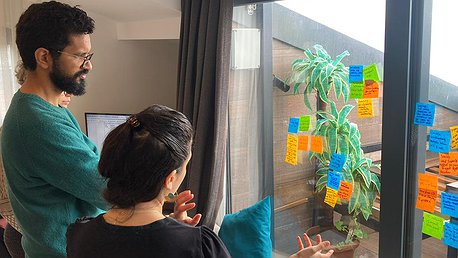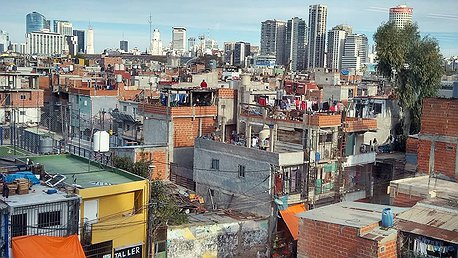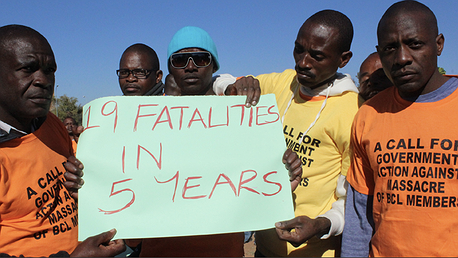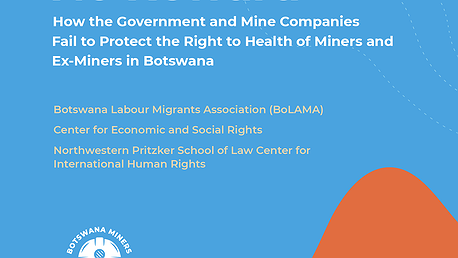OPERA
OPERA is a simple, yet comprehensive framework that activists and researchers can use to more systematically analyze whether governments are meeting their economic and social rights obligations.

OPERA groups together relevant obligations into four dimensions: Outcomes, Policy Efforts, Resources, and Assessment.
It centers a problem facing a particular community or communities and then zooms out to analyze its underlying causes. Where we see problematic outcomes, how have the government’s action (or inaction) affected them? How has the use of resources affected that action? In light of the broader context, is the government responsible for the problem? This helps us understand not just what’s happening, but why.
As well as identifying what questions need to be answered under each of these dimensions, OPERA also suggests tools and techniques for how to answer them. But, importantly, these can be interchanged and adapted to different contexts. Data is a key tool. By illuminating trends and patterns, it helps to debunk myths, reveal new insights and, ultimately, expose systemic injustices. This, in turn, helps to connect the problems communities are facing back to the action or inaction of the government—building a stronger case that it amounts to a human rights violation.
OPERA provides a guiding lens for CESR's work. We’ve also accompanied partners within and beyond the human rights field as they’ve used it to inspire action for change—from local grassroots activists to international organizations. OPERA is grounded in, and enriched by, these experiences. If you’d like to find out more about this work, see our resources below and get in touch with our team.
Learn More
The OPERA Framework
An introduction to the framework that enables advocates and activists to build up a well-evidenced argument about a State’s compliance with its obligation to fulfill economic, social, and cultural rights.
Defending Dignity
This manual guides readers through OPERA to combine both quantitative and qualitative data to produce compelling evidence when governments fail to meet their human rights responsibilities.
Assessing Austerity
This briefing outlines practical guidance for policymakers, oversight bodies, civil society actors, and others seeking to assess and address the foreseeable human rights consequences of austerity.
The Next Act for OPERA
This briefing details our efforts to better understand the community of users of OPERA and what insights we gathered from consultations with them.
